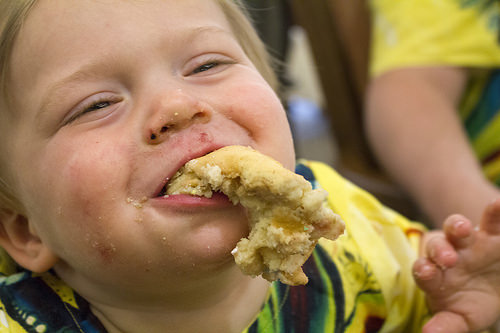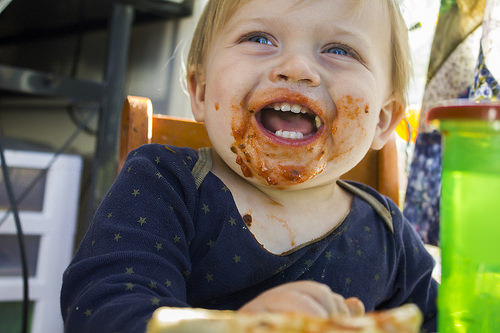Science Says There’s A Reason Your Kid Is A Picky Eater

There are few things more aggravating than cooking a nice, healthy dinner for your family and watching your toddler scream and throw it on the floor. Everyone else loves a good roasted Brussels sprout or a steamed carrot, so what’s his deal? Well, science says human toddlers aren’t alone in being fussy. Baby animals have exhibited the same picky eater behaviors as well.
If this idea seems odd to you, it should. An animal’s natural survival instincts should teach it to eat anything that’s not poison—food scarcity is a real thing. And while science can’t fully explain this phenomenon, biologists are beginning to piece together the puzzle.
First a quick primer: A toddler who turns his or her nose at many foods could be neophobic—afraid of new foods—or they could be a picky eater. There is much debate over whether or not these things are connected. But food neophobia is a pretty typical problem of many toddlers, and is a trait shared by most people, even adults (Would you try live octopus? No? Case in point). Being a true picky eater is a more specialized issue seen in fewer children.



According to a British study published in 2016, research has uncovered evidence that both types of picky eating are, at least in part, determined by genetics. Simplistically, some kids are born with a fussy gene and your cooking is in no way the culprit.
But how does this connect to animals? Well, to really summarize, humans and many other species are faced with an issue called the Omnivore’s Dilemma. This predicament has faced our ancestors since primitive times: How do you balance willingness to try new foods with keeping from poisoning yourself?
The omnivore’s dilemma becomes far more apparent in toddlers, who are beginning to choose foods for themselves, as well as juvenile animals. Where a parent might get slightly ill from eating something new, a child or young animal could poison themselves entirely and die.
Instances of the omnivore’s dilemma have been seen in numerous primate species and even fish. And other studies conducted have proven that animals can be bred to avoid eating specific foods—a lot of it is genetic.
While the science isn’t perfect, researchers say the most reasonable explanation is that young children have evolved to be tentative around new foods to avoid accidentally eating poison. But luckily, children (and young animals) can learn to overcome being a picky eater by mimicking parents at mealtimes. Just another reason to say “no” to the kid’s menu!






